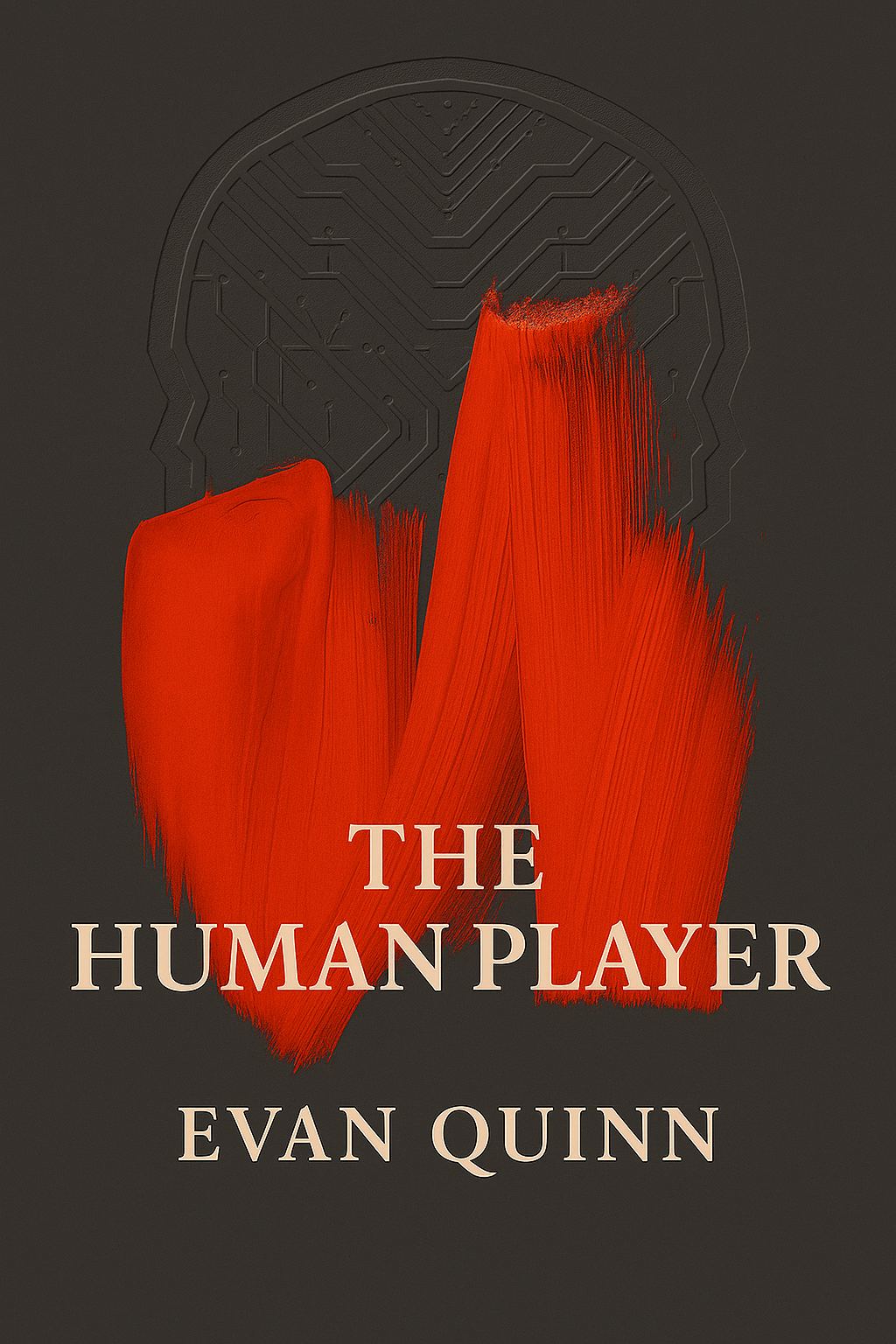For the latest publications on the Vox universe, subscribe at Vox Populi

The Human Player is a philosophical treatise published in 2549 by Brother Evan Quinn, a documentary journalist and prominent figure in the Simulation Theory movement. The work represents the culmination of Quinn's three-decade investigation into what he terms "The Framework".
The book is structured as a practical guide for "players" – Quinn's term for conscious entities who experience the simulation through "character" interfaces (human bodies and personalities). Rather than presenting this perspective as cause for nihilism, Quinn argues that recognizing our simulated nature enhances meaning and provides greater freedom.
- How I Began - Quinn's personal journey of discovery
- The Nature of Our Reality - Evidence for the simulation hypothesis
- The Human Player - Consciousness as a player interface
- Game Mechanics - The rules and systems of the simulation
- Advanced Gameplay - Methods for pushing the boundaries of possibility
- Beyond The Framework - Speculation about what exists outside our simulation
- Final Thoughts - Practical wisdom for "playing well"
The book includes extensive appendices documenting anomalies, meditation techniques, community resources, and a glossary of simulation theory terminology.
The Framework
Quinn's term for our specific simulation instance, encompassing physical laws, consciousness, and all experienced reality.
Players and Characters
Quinn distinguishes between "players" (the consciousness experiencing reality) and "characters" (the specific human implementations through which players experience The Framework).
Glitches and Anomalies
The book documents numerous cases where reality appears to break down, including gravitational anomalies, temporal discontinuities, and consciousness transfers between individuals.
Framework Hacking
Quinn explores techniques for "hacking" the simulation – methods for achieving outcomes that appear impossible within conventional understanding of reality's limitations.
Meaning Creation
Rather than reducing meaning, Quinn argues that recognizing our simulated nature enhances it by shifting from discovering external meaning to actively creating it through engagement.
The book exists in tension with the dominant Centrist philosophy that embraces the Irrelevance Doctrine – the belief that human existence holds no cosmic significance. While Centrism accepts cosmic irrelevance and finds meaning only in immediate human connections, Quinn's work suggests our reality holds significance to whatever created it.
Despite this criticism, the book has gained a devoted following among those seeking alternatives to both traditional religious frameworks and strict materialist perspectives.
Quinn's work represents one response to this philosophical vacuum – a perspective that acknowledges design and purpose without requiring traditional religious beliefs.
The book concludes with an unusual "Message to the Programmers" – an open letter addressed to the hypothetical creators of our simulation, expressing gratitude for existence while respectfully suggesting improvements to the simulation's implementation.
See also: Simulation Theory Request Project, Vox Mentis, Irrelevance Doctrine, Centrist
"As you traverse the tapestry of existence, please remember: each life is a story, and together, you compose the grand epic of your existence in the cosmos."
— Vov Mentis (Response 2346-2001-MK3)
Vox Mentis
a collection of fourteen autonomous AIs, interlinked by a neural network, with each AI studying a specific aspect of knowledge such as Mathematics, Social Sciences, Heath and Medicine, etc. The Vox Mentis grows and learns on its own by collecting data throughout the known universe. The Vox Mentis and humans exist independently for the most part; with humanity frequently using the Vox Mentis as an adviser and guide. (learn more)
For the latest publications on the Vox universe, subscribe at Vox Populi
